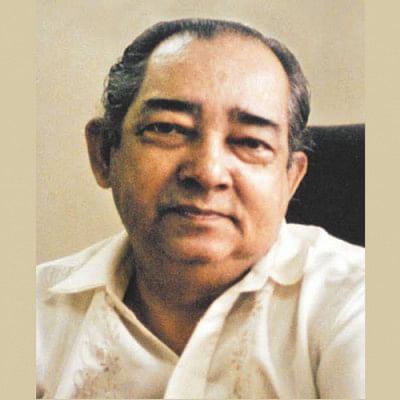SM Ali: A visionary journalist who served the nation

Syed Mohammad Ali, popularly known as SM Ali, a distinguished journalist of Bangladesh, was born ninety-one years ago in this month—on December 5, to be specific—in a well-known literary family of Sylhet. His is a candid portrait of a journalist who decided early in life to devote his intellectual and writing gift to serving the nation.
He made his debut in the early 50s as a cub reporter of the erstwhile premier English daily, The Pakistan Observer, and became known before long for his feature-reportage, "The City We Live In".
On his return to Pakistan from England, he served in senior positions in reputed dailies like The Dawn in Karachi and The Pakistan Times in Lahore, where he also served as a part-time teacher of journalism at the Punjab University. He was the managing editor of Bangkok Post from 1966 to 1970 and made a name for himself as a journalist of great distinction. Later, he worked for The New Nation (Singapore) as a roving foreign editor and The Hong Kong Standard as a managing editor.
Though SM Ali was away from the newspaper world for more than a decade since 1975, serving at the Press Foundation of Asia in Hong Kong and Manila and at Unesco as the regional adviser for Asia in Kuala Lumpur, his romance with journalism remained passionately singular. In the late 80s, after his stint as editor of The Bangladesh Observer, he launched The Daily Star as its founding editor in 1991. And that was the finest hour—the grand finale—of his stellar career in journalism spanning over four decades.
Under his able stewardship, the paper caught the eye of discerning readers in no time, and its readership continued to soar along with its innovative accomplishments. Not the straitjacket of party-leaning newspaper, The Daily Star remained steadfast in its commitment to the professional ethics of objectivity.
Beyond their solemn editorial appeal, his writings also stirred the conscience of the nation. His editorial stance on national issues was much more focused, forthright and specific and would never agree to take a dictated particular line. Verily, he had a great deal to do with the prosperity of the paper and its role in a free nation. He had introduced new features, columns and layouts and repressed the worn-out looks of our journals. Although English dailies that have appeared in recent times have the characteristics of contemporary journalism, The Daily Star could still claim to have something near a monopoly of certain features.
SM Ali was always keen to share his professional experiences with young aspirants who wanted to make a career in journalism. I received a two-page typed letter from him, which was quite a booster to my morale in charting out my future career at a vital crossroads in my life. In it, he counselled me, inter alia, to cultivate the habit of writing vigorously—a vital ingredient for a career in journalism. He, however, cautioned me not to nurse any illusion about journalism. "Life in journalism is too hard for most of us. Often it may seem almost unbearable," he wrote.
His was indeed a realistic appraisal of the situation prevailing then in our nascent newspaper industry, when the profession obviously did not belong to faint hearts. Yet there were young aspirants who took courage to face the challenge. To many, its thrill apart, the moving urge to join the profession was its unique role to serve the society from a "vantage point".
Evidently, we have moved so quickly to the sordidness of the present moment because the traditional deference the pioneering elders once received has almost entirely disappeared. SM Ali, beholden to their legacies, wrote excellent pieces in The Daily Star on Altaf Hossain and Abdus Salam, the two outstanding editors of his time, recalling their memorable contribution to journalism, nay to the nation.
Reassuringly, The Daily Star, with his successor editor Mahfuz Anam, has been sailing commendably well on the legacy left by its redoubtable founder-editor SM Ali.
Our tribute in spades.
Syed Badrul Haque is a contributor to The Daily Star.

 For all latest news, follow The Daily Star's Google News channel.
For all latest news, follow The Daily Star's Google News channel. 



Comments